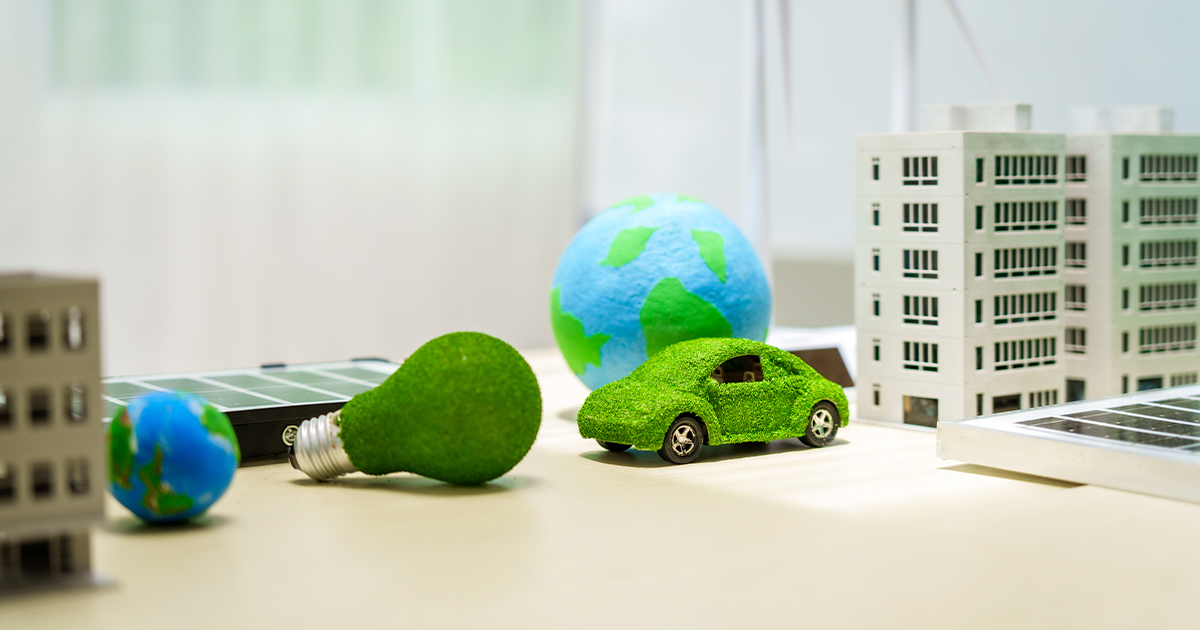Hyundai Motorstudio Senayan Park
Hyundai Motorstudio Senayan Park
Newsroom
The official news from Hyundai Motorstudio Senayan Park and a collection of innovative articles on mobility and sustainability here.
-
Technological Innovation in the Modern Automotive Industry
- Hyundai Motorstudio Senayan Park Senayan Park 2025.06.16
-
Eco-friendly technology is a technological innovation designed to reduce negative impacts on the environment. In the context of the automotive industry, this technology focuses on reducing greenhouse gas emissions, saving energy, and sustainable use of resources. With increasing awareness of climate change and the need for sustainability, the development of environmentally friendly technologies is becoming a top priority.
Eco-friendly technology encompasses various aspects, from vehicle design, alternative fuels, to efficient drive systems. The goal is to create a vehicle that not only meets the needs of human mobility but also maintains air quality and reduces carbon footprint.
In addition, this technology also involves the use of recyclable materials and a production process with minimal waste. This approach is in line with the principles of the circular economy that are now increasingly adopted by the global automotive industry.
Examples of Technology in Electric Vehicles and Hydrogen
The modern automotive industry has adopted two main technologies as environmentally friendly solutions, namely electric vehicles (EVs) and hydrogen-based vehicles (Fuel Cell Vehicles / FCV).
Electric Vehicles (EVs)
Electric vehicles use electric motors as the main drivers and batteries as energy sources. EVs eliminate exhaust emissions directly, making them very environmentally friendly. The development of lithium-ion battery technology allows EVs to have longer mileage and faster charging times.
In addition, EVs also offer a smoother and quieter driving experience compared to fossil fuel vehicles. With more and more electric charging stations available, EVs are becoming an increasingly practical option for everyday use.
Hydrogen Vehicles (Fuel Cell Vehicles)
Hydrogen vehicles use fuel cells to convert hydrogen into electricity that powers electric motors. This process produces emissions only in the form of water vapor, so it is very clean and does not pollute the air.
The main advantages of hydrogen technology are the relatively fast refueling time, similar to conventional vehicles, as well as the long mileage. However, hydrogen refueling infrastructure is still in the development stage in many countries.
Both technologies are important milestones in reducing dependence on fossil fuels and reducing air pollution in cities.
Hyundai Innovation
Hyundai Motor Company has shown a strong commitment to technology development through various innovations and superior products.
Hyundai IONIQ and KONA Electric
Hyundai presents electric vehicle lines such as IONIQ and KONA Electric that are designed to meet consumers' needs for clean and efficient vehicles. Both models are equipped with large-capacity batteries and fast-charging technology, providing competitive mileage and driving comfort.
In addition, Hyundai continues to develop solid-state battery technology that promises better safety and performance in the future.
Hyundai NEXO – Hydrogen Vehicle
The Hyundai NEXO is one of the most advanced hydrogen-based vehicles today. NEXO offers long mileage with zero emissions, and features modern safety and comfort.
Hyundai is also active in building a hydrogen ecosystem, including the development of charging stations and collaborations with various parties to accelerate the adoption of this technology.
A Sustainable Approach in Production
In addition to product innovation, Hyundai applies sustainability principles throughout the production chain. The use of recycled materials, the reduction of manufacturing waste, and energy efficiency are the main focuses in the vehicle production process.
This supports Hyundai's vision to achieve carbon neutrality by 2045 and become a leader in the green automotive industry.
Positive Impact on the Environment and Consumers
The adoption of eco-friendly technologies in the automotive industry brings a variety of significant benefits.
Carbon Emission Reduction
Electric vehicles and hydrogen help drastically reduce carbon emissions, which are the main causes of climate change. With reduced pollution from the transport sector, national and global targets for emission reductions can be more easily achieved.
Improved Air Quality
The use of environmentally friendly vehicles is essential to improve air quality, especially in large cities with high pollution. This has a positive impact on public health by reducing the risk of respiratory and cardiovascular diseases.
Long-Term Cost Efficiency
Although the initial price of an eco-friendly vehicle can be higher, the operating costs tend to be lower. The cost of electric or hydrogen fuel is cheaper than fossil fuels, and the maintenance of electric vehicles is relatively simpler because there are fewer moving components.
A Better Driving Experience
Electric vehicles offer smooth acceleration and minimal engine noise, providing more comfort for the driver and passengers. Hydrogen vehicles also provide the flexibility of fast refueling, so they don't sacrifice user comfort.
Green technology is an important foundation in the transformation of the automotive industry towards a sustainable future. Innovations in electric vehicles and hydrogen are paving the way for cleaner and more efficient transportation solutions. Hyundai, with its wide range of products and innovative approaches, is demonstrating a strong commitment to leading this change.
Through green technology, we not only protect the earth from further damage but also improve the quality of life and driving comfort for consumers. The future of sustainable automotive is now increasingly real and can be enjoyed by all.




